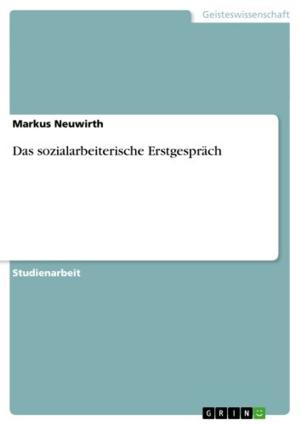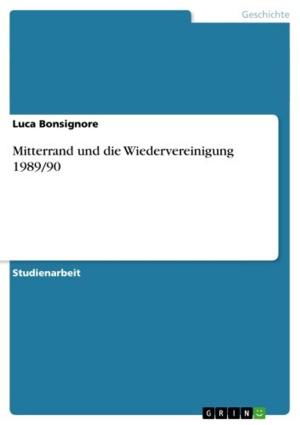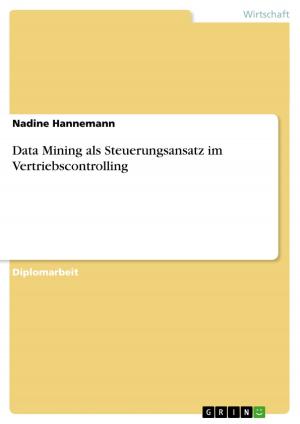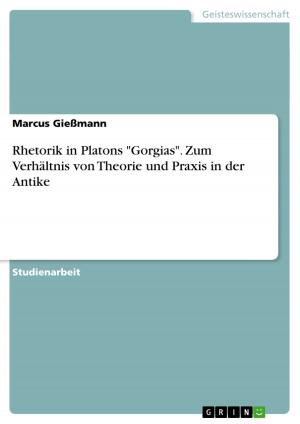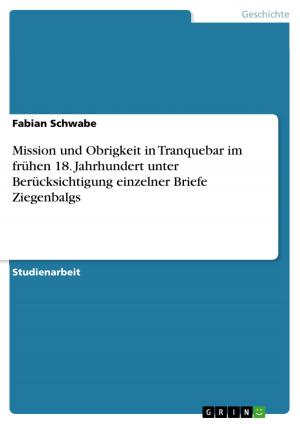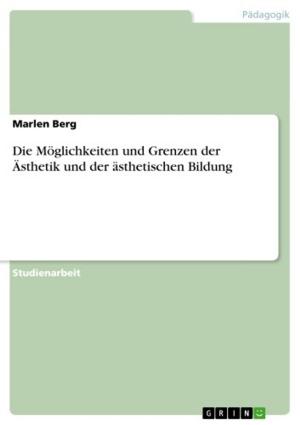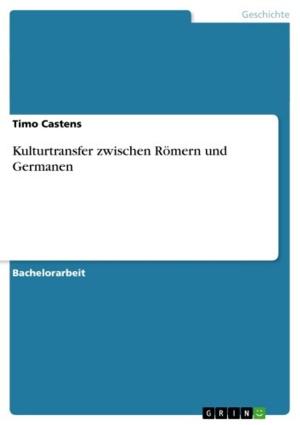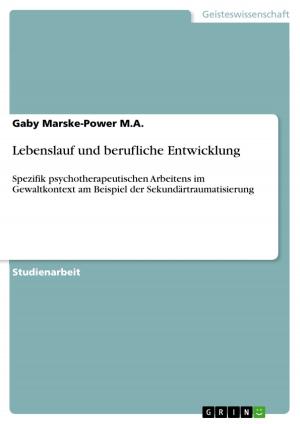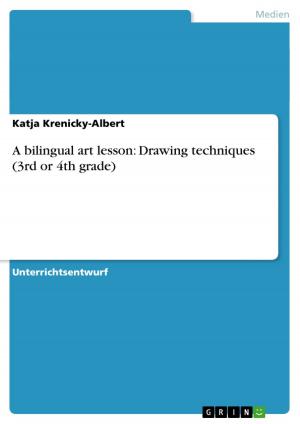| Author: | Stefan Kirchner | ISBN: | 9783640465842 |
| Publisher: | GRIN Verlag | Publication: | November 6, 2009 |
| Imprint: | GRIN Verlag | Language: | German |
| Author: | Stefan Kirchner |
| ISBN: | 9783640465842 |
| Publisher: | GRIN Verlag |
| Publication: | November 6, 2009 |
| Imprint: | GRIN Verlag |
| Language: | German |
Essay aus dem Jahr 2009 im Fachbereich Jura - Strafrecht, Note: sehr gut, Justus-Liebig-Universität Gießen, Sprache: Deutsch, Abstract: Obschon der Tatbestand der Aussetzung als 'sperrig' gilt, gehört er zum Pflichtstoff in den Prüfungsordnungen nahezu aller Bundesländer. Tatsächlich ist die (Kindes-)Aussetzung eines der klassischen Delikte des StGB. Im Mittelpunkt der Darstellung steht der Aussetzungstatbestand, insbesondere die Änderungen, welche derselbe erfahren hat. Dies soll dem Leser auch ein besseres Verständnis der einschlägigen Literatur und Rechtsprechung aus der Zeit vor dem Inkrafttreten des 6. StRG ermöglichen. Gerade da der Aussetzungstatbestand in der rechtswissenschaftlichen Literatur, von der Ausnahmesituation des 6. StRG abgesehen, eher stiefmütterlich behandelt wird, wird eine nähere Auseinandersetzung mit dem Thema regelmäßige ältere Literatur und Rechtsprechung einschließen. Auch dies soll diese Arbeit erleichtern. Zu den Änderungen gehört beispielsweise die Darstellung der 'Gefahr der schweren Gesundheitsbeschädigung', welche neu in den Tatbestand aufgenommen wurde, ebenso wird der Ausweitung des Opferkreises in der Darstellung Rechnung getragen. In diesem Zusammenhang wird unter anderem auf die Frage der Notwendigkeit einer räumlichen Veränderung zum Versetzen in eine hilflose Lage eingegangen werden sowie die der neue Aussetzungstatbestand beispielsweise auf die Frage hin untersucht, wie § 221 n. F. in die Systematik der echten/unechten Unterlassungsdelikte einzuordnen ist. Dargestellt werden des weiteren das Verhältnis des Aussetzungstatbestandes zu anderen Delikten ebenso wie die Rolle der eigenverantwortlichen Selbstgefährdung im Rahmen der Aussetzung sowie die Versuchsstrafbarkeit außerhalb des Grundtatbestandes. Abschließend soll auf die Frage eingegangen werden, ob die Ziele des Gesetzgebers durch die Neufassung der Norm vor einem Jahrzehnt tatsächlich erreicht wurden. Die vorliegende Arbeit soll aber nicht nur die Arbeit des Gesetzgebers bewerten oder allein dem Lernenden einen Überblick über die Norm verschaffen, in besonderem Maße soll sie zugleich dem Praktiker eine Handreichung sein, der den effektiven Umgang mit dem Tatbestand erleichtern soll.
Docent Dr. Stefan Kirchner, Assessor jur., MJI is Associate Professor for Arctic Law at the Arctic Centre of the University of Lapland in Rovaniemi, Finland, and Adjunct Professor of Fundamental and Human Rights at the same university. His work focuses on the crossroads of human rights, the environment, shared areas, in particular the oceans and outer space, and international business and trade. Prior to joining the Arctic Governance Research Group at the Arctic Centre he taught public law, international law and civil rights as Visiting Professor for Transitional Justice at the University of Turin (Italy), University Lecturer and Associate Professor for Fundamental and Human Rights, with a Special Focus on Indigenous Rights, at the Faculty of Law of the University of Lapland in Rovaniemi (Finland), Assistant Professor for International Law and Associate Professor for the Law of the Sea at Vytautas Magnus University in Kaunas (Lithuania), scientific employee in the Department of Public Law of the Faculty of Law of Georg-August-University in Göttingen (Germany), and Visiting Lecturer at the Institute of International Relations at Tars Shevchenko National University in Kyiv (Ukraine) and at the Faculty of Law Justus-Liebig-University in Giessen (Germany). Formerly a practising lawyer (Rechtsanwalt) in Germany for over a decade, he has worked on international trade law, corporate law, the law of the sea and human rights law, including cases at the German Federal Constitutional Court (Bundesverfassungsgericht), the German Federal Supreme Court (Bundesgerichtshof), the German Federal Administrative Court (Bundesverwaltungsgericht) and the European Court of Human Rights. In addition, he served as legal agent for Germany's Federal Maritime and Hydrographic Agency, working on international shipping law, oil pollution and seafarer training issues. Dr. Kirchner is active in a number of professional organizations and is a regular reviewer for a number of academic publishing houses and academic journals, a member of editorial boards for several international academic journals and has written over one hundred academic articles and book chapters. He has been an evaluator of research projects for the Norwegian Academy of Sciences and Letters. Prior to his legal career he worked as a freelance journalist in Germany, as an emergency medical technician (Rettungssanitäter) for the German Red Cross and as a factory worker for a company producing transformers.
Essay aus dem Jahr 2009 im Fachbereich Jura - Strafrecht, Note: sehr gut, Justus-Liebig-Universität Gießen, Sprache: Deutsch, Abstract: Obschon der Tatbestand der Aussetzung als 'sperrig' gilt, gehört er zum Pflichtstoff in den Prüfungsordnungen nahezu aller Bundesländer. Tatsächlich ist die (Kindes-)Aussetzung eines der klassischen Delikte des StGB. Im Mittelpunkt der Darstellung steht der Aussetzungstatbestand, insbesondere die Änderungen, welche derselbe erfahren hat. Dies soll dem Leser auch ein besseres Verständnis der einschlägigen Literatur und Rechtsprechung aus der Zeit vor dem Inkrafttreten des 6. StRG ermöglichen. Gerade da der Aussetzungstatbestand in der rechtswissenschaftlichen Literatur, von der Ausnahmesituation des 6. StRG abgesehen, eher stiefmütterlich behandelt wird, wird eine nähere Auseinandersetzung mit dem Thema regelmäßige ältere Literatur und Rechtsprechung einschließen. Auch dies soll diese Arbeit erleichtern. Zu den Änderungen gehört beispielsweise die Darstellung der 'Gefahr der schweren Gesundheitsbeschädigung', welche neu in den Tatbestand aufgenommen wurde, ebenso wird der Ausweitung des Opferkreises in der Darstellung Rechnung getragen. In diesem Zusammenhang wird unter anderem auf die Frage der Notwendigkeit einer räumlichen Veränderung zum Versetzen in eine hilflose Lage eingegangen werden sowie die der neue Aussetzungstatbestand beispielsweise auf die Frage hin untersucht, wie § 221 n. F. in die Systematik der echten/unechten Unterlassungsdelikte einzuordnen ist. Dargestellt werden des weiteren das Verhältnis des Aussetzungstatbestandes zu anderen Delikten ebenso wie die Rolle der eigenverantwortlichen Selbstgefährdung im Rahmen der Aussetzung sowie die Versuchsstrafbarkeit außerhalb des Grundtatbestandes. Abschließend soll auf die Frage eingegangen werden, ob die Ziele des Gesetzgebers durch die Neufassung der Norm vor einem Jahrzehnt tatsächlich erreicht wurden. Die vorliegende Arbeit soll aber nicht nur die Arbeit des Gesetzgebers bewerten oder allein dem Lernenden einen Überblick über die Norm verschaffen, in besonderem Maße soll sie zugleich dem Praktiker eine Handreichung sein, der den effektiven Umgang mit dem Tatbestand erleichtern soll.
Docent Dr. Stefan Kirchner, Assessor jur., MJI is Associate Professor for Arctic Law at the Arctic Centre of the University of Lapland in Rovaniemi, Finland, and Adjunct Professor of Fundamental and Human Rights at the same university. His work focuses on the crossroads of human rights, the environment, shared areas, in particular the oceans and outer space, and international business and trade. Prior to joining the Arctic Governance Research Group at the Arctic Centre he taught public law, international law and civil rights as Visiting Professor for Transitional Justice at the University of Turin (Italy), University Lecturer and Associate Professor for Fundamental and Human Rights, with a Special Focus on Indigenous Rights, at the Faculty of Law of the University of Lapland in Rovaniemi (Finland), Assistant Professor for International Law and Associate Professor for the Law of the Sea at Vytautas Magnus University in Kaunas (Lithuania), scientific employee in the Department of Public Law of the Faculty of Law of Georg-August-University in Göttingen (Germany), and Visiting Lecturer at the Institute of International Relations at Tars Shevchenko National University in Kyiv (Ukraine) and at the Faculty of Law Justus-Liebig-University in Giessen (Germany). Formerly a practising lawyer (Rechtsanwalt) in Germany for over a decade, he has worked on international trade law, corporate law, the law of the sea and human rights law, including cases at the German Federal Constitutional Court (Bundesverfassungsgericht), the German Federal Supreme Court (Bundesgerichtshof), the German Federal Administrative Court (Bundesverwaltungsgericht) and the European Court of Human Rights. In addition, he served as legal agent for Germany's Federal Maritime and Hydrographic Agency, working on international shipping law, oil pollution and seafarer training issues. Dr. Kirchner is active in a number of professional organizations and is a regular reviewer for a number of academic publishing houses and academic journals, a member of editorial boards for several international academic journals and has written over one hundred academic articles and book chapters. He has been an evaluator of research projects for the Norwegian Academy of Sciences and Letters. Prior to his legal career he worked as a freelance journalist in Germany, as an emergency medical technician (Rettungssanitäter) for the German Red Cross and as a factory worker for a company producing transformers.

